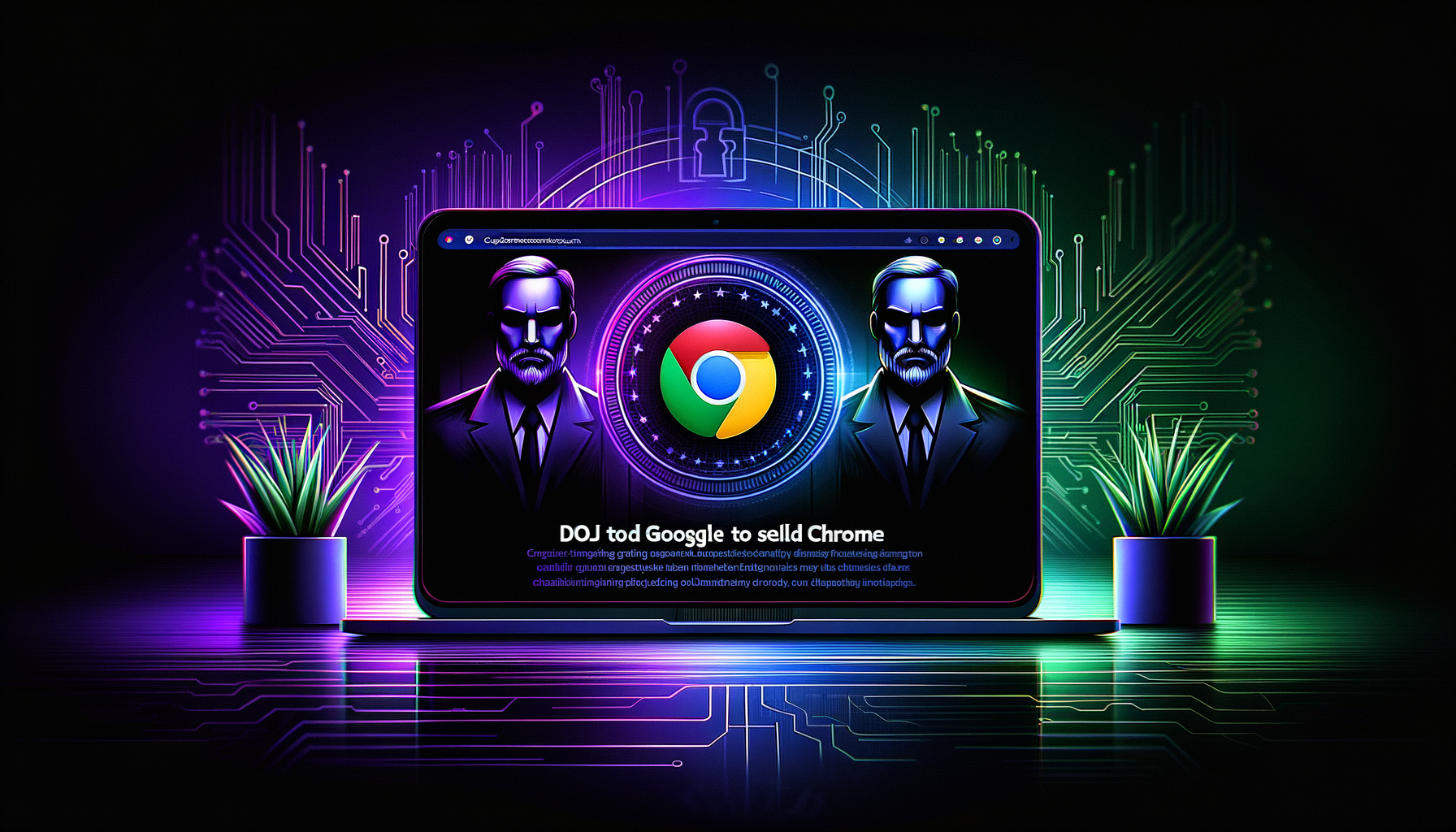U.S. Department of Justice Pushes Google to Divest Chrome – Implications for Cybersecurity and Tech Industry
The U.S. Department of Justice (DOJ) recently made headlines by recommending that Google sell its highly popular Chrome browser. This move, aimed at addressing antitrust concerns, could have significant implications for the tech giant and the broader technology and cybersecurity landscape. As tech companies globally assess the potential impacts, including in Europe and Spain, it’s crucial to delve into the nuances of this decision and its cascading effects.
Background on the DOJ’s Antitrust Actions Against Google
The DOJ’s action is part of a larger antitrust lawsuit against Google, which has been under scrutiny for allegedly monopolizing the digital advertising market and stifling competition. By dominating over 60% of the browser market share, Chrome represents a key component of Google’s ecosystem. This dominance concerns regulators who argue that it undercuts competition and innovation. As the case unfolds, the decision to propose the divestiture of Chrome highlights the complexities of antitrust law application in technology.
The stakes are high, not only for Google but also for the tech sector as companies reassess market dynamics and potential regulatory shifts [source: The New York Times].
Repercussions for the Cybersecurity Landscape
With Google’s potential divestiture of Chrome, cybersecurity experts and companies must consider several significant impacts:
- Increased Vulnerability Risks: Transition periods often present heightened security risks. For businesses reliant on Chrome, this change could expose them to new vulnerabilities unless mitigated by robust cybersecurity solutions like Next Generation Firewall (NGFW) technology, which offers advanced threat protection and network security.
- Data Security and Privacy Concerns: A shift in control of Chrome might affect data handling practices, potentially requiring reevaluated Data Loss Prevention (DLP) strategies to safeguard sensitive information.
- Need for Enhanced Monitoring and Response: Organizations may need to leverage services like EDR, XDR, and MDR to boost their endpoint protection and incident response capabilities in light of new threats emerging during this transition.
Hodeitek’s Role in Mitigating these Risks
At Hodeitek, we offer a comprehensive suite of cybersecurity services aimed at helping organizations navigate these uncertainties. Our SOC as a Service (SOCaaS) 24×7 ensures continuous threat monitoring and response, essential during unpredictable market changes. Additionally, our Web Application Firewall (WAF) provides application-level security that shields against online threats, keeping your digital assets safe.
European Regulatory Perspective
In Europe, particularly within the EU, competition laws and their enforcement are notably strict, often surpassing U.S. regulatory actions. The European Commission has repeatedly scrutinized Google’s practices, resulting in significant fines and mandates to change business operations [source: BBC News].
This context presents both challenges and opportunities for businesses in the EU. On one hand, increased regulation aligns with protecting consumer rights and encouraging fair competition. On the other hand, the compliance landscape becomes more intricate. Here, services like Vulnerability Management as a Service (VMaaS) help companies proactively manage and comply with evolving regulatory standards by identifying and addressing potential vulnerabilities before they can be exploited.
Strategic Implications for Businesses
The potential sale of Chrome demands strategic recalibration from companies globally. Businesses need to:
- Adapt to New Browser Options: With a potential breakup, different players might manage Chrome, introducing variations in browser capabilities and integrations. Businesses should explore options and prepare for potentially supporting multiple browsers.
- Enhance Cyber Threat Intelligence (CTI): As cyber threats evolve, having robust CTI becomes non-negotiable. This service gathers and analyzes threat data to provide actionable insights, ensuring organizations can preemptively address emerging risks.
- Leverage Industrial SOC as a Service: For industrial sectors, the transition could necessitate specialized security measures. Our Industrial SOC as a Service (SOCaaS) 24×7 is specially designed to handle unique industrial challenges, providing comprehensive security oversight.
Positioning for the Future
Proactive cybersecurity strategies and adaptability to regulatory changes are crucial as the Chrome divestiture unfolds. By leveraging our expert services, organizations can not only secure their operations but also seize opportunities that arise from technological shifts. We encourage businesses to reach out through our contact page to discuss tailored cybersecurity strategies that meet their unique needs.
Conclusion
The DOJ’s recommendation for Google to sell Chrome marks a pivotal moment for antitrust enforcement in the tech industry. While aiming to enhance competition, this move simultaneously necessitates heightened vigilance in cybersecurity measures, especially for businesses utilizing Chrome’s ecosystem. At Hodeitek, we stand ready to assist companies by providing industry-leading cybersecurity services, ensuring they are well-equipped to navigate the evolving landscape. To learn more about our services and how we can help safeguard your organization, visit our cybersecurity services page today.
Embrace change with confidence. Secure your future with Hodeitek.






